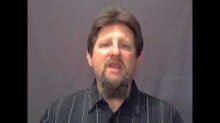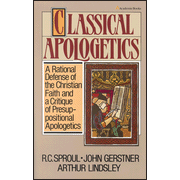Duty of Believing in Jesus Christ: The Person of Christ: Union of Natures- Book Fifth- Chapter 1- Section 3
Book Fifth
CHAPTER I.
SECTION III.–UNION OF NATURES.
THE TWO NATURES OF JESUS CHRIST, THE DIVINE AND THE HUMAN, ARE UNITED IN ONE PERSON.[119]
The name Son of God, properly denotes his divine nature; and the name Son of Man, his human nature. He frequently called himself the Son of God; more frequently, the Son of Man. Both these names were used as denoting one and the same person. The whole use of them indicates this; but there are some passages which show it more clearly than others. After speaking of himself as the Son of God, he says the Father hath given him authority to execute judgment, because he is the son of man.[120] Here the same person is manifestly called the Son of God, and the Son of Man. In other cases, attributes or works which belong to one nature, are ascribed to his person, denoted by the name which is derived from the other nature. “No man hath ascended up to Heaven, but he that came down from Heaven, even the Son of Man, which is in Heaven.”[121] Here he is named from his human nature, the Son of Man; while omnipresence is ascribed to him, which belongs to his divine nature. Another example of like kind is, “The Son of Man is Lord also of the Sabbath.”[122] The superiority to the Sabbath belongs to his divine nature, but the name by which he is designated belongs to the human. On the other hand, he is called God, and the Lord of Glory, when his blood and his crucifixion, things pertaining to his human flesh, are the subjects of discourse. “They would not have crucified the Lord of Glory.”[123] “The Church of God, which he hath purchased with his own blood.”[124]
How two natures so widely different, should be so united, we cannot understand. In the union of the body the soul of man in one person, there is a similar fact which we are unable to comprehend; but if we should disbelieve it, we should reject the testimony of our own consciousness. We have, therefore, no plea for rejecting the doctrine now before us, on the ground of mysteriousness.
The union of the two natures does not confound the properties peculiar to each. The humanity is not deified, nor the divinity humanized. So, the body of man does not become spirit, by its union with the soul; nor does the soul become matter, by its union with the body.
The union of Christ’s divinity with his humanity, is a different thing from the indwelling of the Godhead in him. The Holy Ghost dwells in believers, so that their bodies are called his temple, but this union does not constitute them one person. So, though Jesus said, “The Father is in me, and I in him,” he addressed his Father, and spoke of him, as a distinct person. The same is true of the Holy Spirit which dwelt in him, being given to him without measure.
The personal union is more than a mere manifestation of the divine nature through the human. God manifests himself in the works of creation. But this manifestation is not a personal union; otherwise, the universe must be God.
This union is indissoluble. Jesus will ever be the Lamb in the midst of the throne,[125] and will ever appear, in his glorified humanity, to the worshipping saints, who, with adoring praise, will for ever sing, “Worthy is the Lamb that was slain, to receive power and riches, and wisdom and strength, and honor and glory and blessings.”[126]
[119] John iii. 13; Rom. i. 4; ix. 5; 1 Cor. ii. 8; Matt. i. 23.
[120] John v. 27.
[121] John iii. 13.
[122] Mark ii. 28.
[123] 1 Cor. ii. 8.
[124] Acts xx. 28.
[125] Rev. vii. 17.
[126] Rev.. v. 12.
John L. Dagg- Manual of Theology












Recent Comments